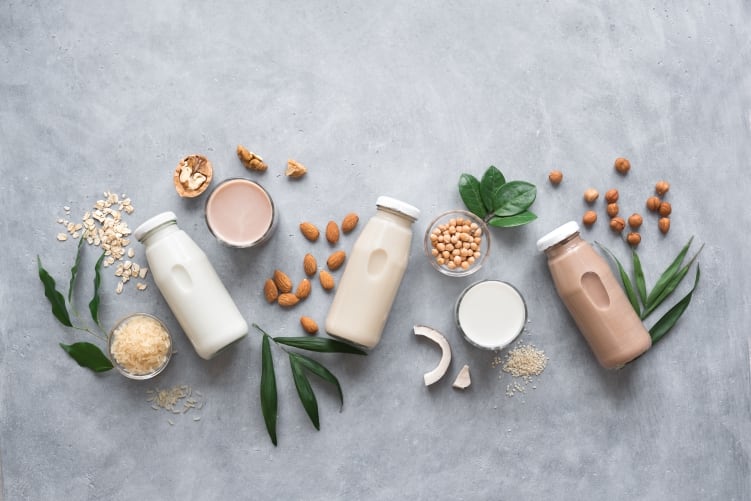In a new white paper, the ingredients company highlights the growing prevalence of vegan and other non-dairy diets and its impact on plant-based markets.
According to Markets and Markets, the dairy alternative market is projected to grow from $21.4bn globally in 2020 to $36.7bn by 2025 ― a CAGR of 11.4%. Similarly, the plant-based protein market is predicted to increase from $10.3bn in 2020 to $14.5bn by 2025 – a CAGR of 7.1%.
In order to help manufacturers meet consumers’ needs for micronutrients such as vitamin B12 in plant-based food, Prinova has developed new nutrient-rich premixes for dairy replacement products, and new recipes to demonstrate how well they work.
Made from Prinova’s 85% pea protein, the company said its plant-based milk alternative is smooth and creamy with a full yet light mouthfeel, and its pea protein yogurt is whiter than most plant-based alternatives on the market.
A single serving of each recipe with 25mg of the premix contains 15% of the recommended intake of Vitamin B12 and 50% of the recommended intake of Vitamin D.
Prinova also offers a premix optimized for plant-based cheese alternatives, which it is showcasing in a vegan cream cheese alternative recipe. The premixes can all be adapted to include additional functional ingredients, such as probiotics, as well as flavorings.
Tony Gay, head of technical sales & NPD for nutrition at Prinova, said, “The rise of plant-based diets is one of the most important trends in the food industry today. It has created a whole new consumer segment with particular nutritional needs, and new challenges and opportunities for manufacturers. One of the best strategies they can adopt is the use of nutrient-rich premixes. Our new recipes demonstrate how easy it is to offer appealing dairy replacement products that meet the nutritional requirements of vegan consumers.”
The new recipes were made using Prinova’s Pea Protein 85%, which is high in branched-chain amino acids, and is allergen-free. Additionally, Prinova offers a full portfolio of other plant-based proteins, which includes chickpea, oat and soy, and which can be used in applications ranging from sports nutrition to pet food.

